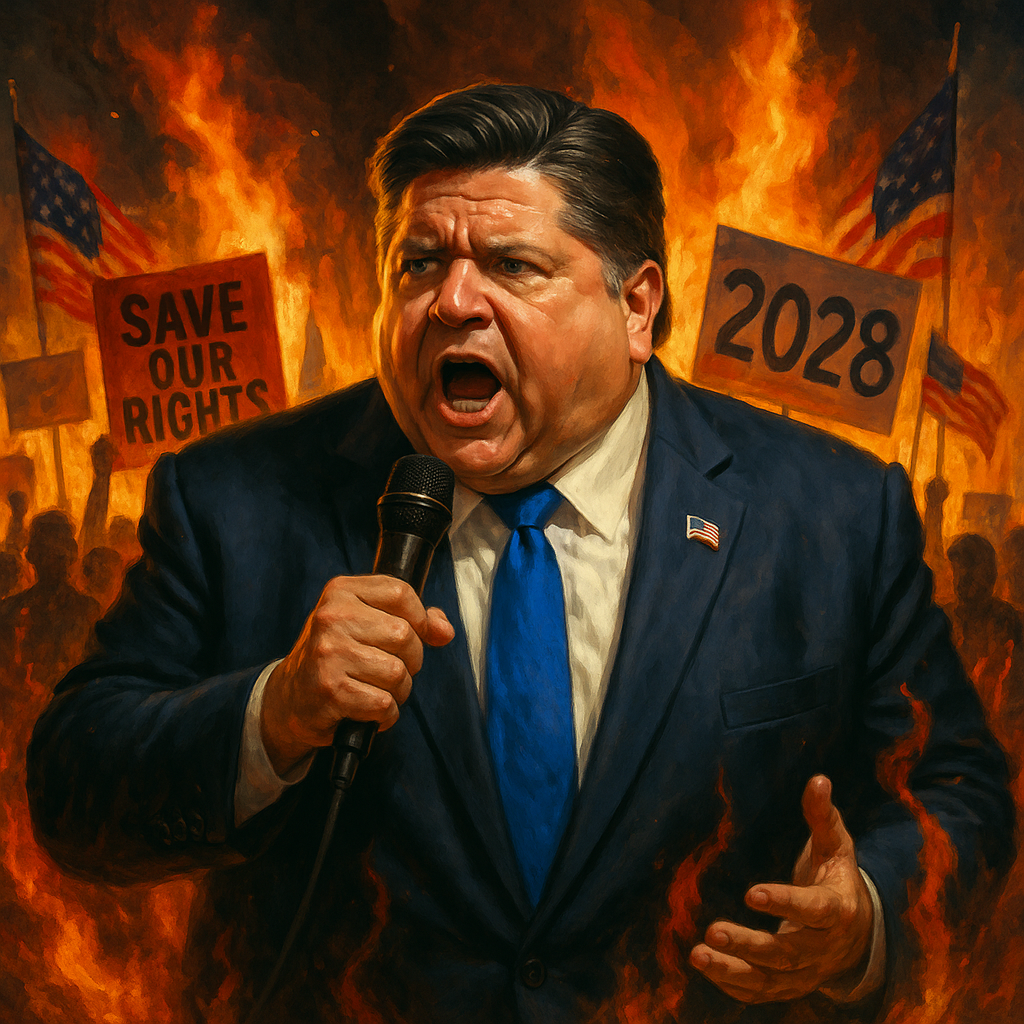Illinois Gov. J.B. Pritzker’s fiery call for mass protests over threats to democracy is fueling fresh speculation about a potential 2028 presidential run.
On April 25, Illinois Governor J.B. Pritzker delivered one of the most impassioned speeches of his tenure, urging supporters to take to the streets in mass protest against “threats to our democracy.” Speaking before a packed crowd at Chicago’s Millennium Park, Pritzker vowed that “when our freedoms are under siege, silence is complicity”—a line that drew thunderous applause and immediate headlines across the nation.
Pritzker Context of the Address
Pritzkers speech came amid ongoing debates over federal voting rights legislation, the handling of immigration at the southern border, and the Department of Justice’s investigations into former President Trump. Framing the moment as a “defining crossroads” for American democracy, the governor positioned himself as both a defender of progressive values and a unifier capable of transcending partisan gridlock.
Key Moments and Messaging
- Call to Action:“I’m not here to ask you politely,” jb declared. “I’m here to demand that you stand up—and stand together.
- ”Unifying Vision:Echoing themes from his 2018 gubernatorial campaign, he emphasized economic opportunity and social justice, asserting that grassroots activism remains “the most powerful check on unchecked power.”
- Targeting OpponentsWithout naming names, the governor criticized “political actors willing to undermine our institutions for personal gain,” a clear reference to the ongoing controversies surrounding former administration figures.
Immediate Reaction
- Progressive Base: Grassroots groups and labor unions praised Pritzker’s forthrightness. Several Illinois Statehouse Democrats immediately endorsed his language, calling it “the kind of fearless leadership we need.
- Republican Pushback: GOP lawmakers accused him of fomenting unrest and “putting politics over public safety.” Illinois Senate Republicans introduced a resolution condemning any calls for civil disobedience that might risk property damage or violence.
- Media Buzz: National outlets—from cable news to political blogs—were quick to speculate on Pritzker’s broader ambitions. Within hours, social media metrics showed a 300% spike in searches for “Pritzker 2028” and “Pritzker presidential run.”
Political Implications: Is 2028 Next?
While Pritzker has repeatedly downplayed rumors of a White House bid, the timing and tone of this speech have fueled fresh conjecture among strategists:
- Fundraising Surge: Illinois campaign committees linked to Pritzker reported a 40% increase in small-dollar donations in the 24 hours following the address.
- National Name Recognition: By staking out a forceful national platform on democracy and rights, Pritzker has elevated his profile well beyond Illinois—an essential step for any serious presidential contender.
- Potential Hurdles: Critics point to his record on taxes and recent ethics inquiries in Springfield as vulnerabilities that could be exploited in a crowded Democratic primary field.
What’s Next for Pritzker
Over the coming weeks, all eyes will be on the governor’s travel schedule, fundraising filings, and any further high-profile appearances outside Illinois. Should he continue to lean into national issues—and sustain the momentum generated by this “fiery call”—it may only be a matter of when, not if, he takes the plunge for 2028.
Conclusion
J.B. Pritzker’s April address was more than a policy statement—it was a strategic gambit that has reshaped the conversation around his political future. By channeling public anger into a rallying cry for protest, the Illinois governor has positioned himself squarely in the national spotlight, leaving pundits to wonder whether this is the opening salvo of a 2028 presidential campaign see more.

